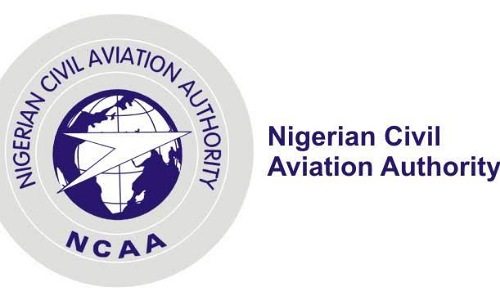Aviation
Airbus Shrugs Off Canceled Plane Orders

BEIJING – Airbus Group NV Chief Executive Tom Enders on Wednesday said a flurry of order cancellations for its commercial jetliners doesn’t herald a market downturn and that many of the deals for single-aisle jets will return at a later date.
Net commercial jet order intake this year already is ahead of planned deliveries with “a lot more orders” to come, Mr. Enders said. “The market is still very strong” with weak spots such as Asia merely regional blips, he said.
Airbus on Tuesday reported a 31% rise in second-quarter net profit to €696 million ($933.3 million) as sales advanced 7% in the quarter to €14.5 billion. The company’s shares rose more than 3.7% in early Paris trading.
Airbus has suffered more than 225 order canceled this year, including a decision by Emirates Airlinenot to acquire 70 A350 long-range jets. That number isn’t alarming, Mr. Enders said, with only the Emirates development truly unforeseen.
Cancellations particularly of the A320 single-aisle jet, the backbone of Airbus production, are driven partly by a transition to a newer model, the A320neo for “new engine options,” Mr. Enders said. Deals with airlines that normally would delay A320 orders are now being canceled because the Toulouse-based plane maker wants to quickly shift to building only the A320neo, which starts being delivered next year.
“We have to cancel these old orders and these are normally transferred into new orders,” Mr. Enders said. More A320 cancellations of this type are likely this year and next, he said. In some cases, the replacement deals are booked at better financial terms, Mr. Enders said.
His comments come just a day after Airbus said it had canceled the sale of six A380 superjumbos to Japan’s Skymark Airlines. 9204.TO -13.60% Two of the planes have already been assembled leaving the manufacturer to seek other buyers at a time it has struggled to win new orders for its flagship plane.
Mr. Enders said not delivering the Skymark planes wouldn’t undermine a long-standing goal for A380 shipments next year to reach break even after years of losses. The deal with the Japanese carrier was canceled before the complex cabin interior was installed which should make re-marketing the plane easier, he said.
Other A380 customers have also indicated they may not want the jet, such as Virgin Atlantic Airways. “We have cases where airlines are in the order backlog but not in the actual production plan,” Mr. Enders said, without naming specific airlines.
Sales campaigns are ongoing to secure more A380 orders, he said, while acknowledging “the very large aircraft category is a weak category.”
Additional jetliner bookings this year will also come from a decision to introduce an upgraded version of the A330 widebody at the Farnborough air show this month, Mr. Enders said. The world’s second-largest plane maker secured $75.3 billion in deals at the event.
The so-called A330neo is due for delivery from late 2017 and promises 14% greater efficiency over the existing model largely by adding new engines from Rolls-Royce Holdings RR.LN +0.38% PLC.
The A330 has been an important contributor to Airbus profit, but the existing version was starting to run short of orders as more fuel-efficient planes such as the Boeing Co. BA -0.60% 787 Dreamliner entered the market. Airbus has won 127 commitments for the A330neo jet and it projects demand to top 1,000 aircraft.
To help boost profit, Airbus has embarked on a wide scale restructuring, including integrating its defense and space units to help lift profitability. Those efforts are progressing well, Mr. Enders said.
As part of its restructuring plan, Airbus said it is studying disposal options for its nonvoting share in Dassault Aviation SA, AM.FR +1.66% the maker of business aircraft and the Rafale combat jet. Airbus has a 46% stake in the company. The French government has the right of first refusal on the disposal of some or all of the stake.
“We want to monetize that participation,” Mr. Enders said. “It is not a question of if it is a question of when,” he said. Airbus has faced investor pressure to shed the stake which Mr. Enders saying the company was “actively engaging” on the issue.
Airbus maintained its full-year guidance of moderate returns on sales growth this year while reaching 7% to 8% returns in 2015, not counting development costs of the A330neo. Those will crimp return on sales next year, the company said when it launched the project.
The world’s second-largest plane maker, like rival Boeing, relies heavily on titanium from Russia to make its jets. Mr. Enders said the company’s relationship for titanium raw material and forgings from VSMPO, the world’s biggest titanium supplier, is stable.
“I do not expect the flow of it will be cut off short of all-out war,” Mr. Enders told analysts on a call as the European Union imposes further sanctions on Russia over the country’s efforts to destabilize Ukraine. Airbus is exploring potential mitigation action to protect against supply disruptions.
Airbus’s newest long-range jetliner, the A350, is in its final test phase before regulators signoff on the design, clearing the way for the first jet to be delivered to lead-operator Qatar Airways Ltd. before year-end. “The A350 program remains challenging,” Airbus said in the statement, though certification for safety authorities remains on track for this quarter.
– WALLSTREET JOURNAL
Aviation
JUST IN: Emirates Airlines Set To Restore Flights To Nigeria
Emirates Airlines has announced plan to resume flight operations to Nigerian airports on October 1, 2024, after a two-year hiatus.
The news was shared by the airline on its verified X handle on Thursday.
It stated, “We’re back Nigeria! We’ll be resuming services to Lagos from 1 October 2024, and we can’t wait to offer unrivalled connectivity to Dubai and beyond to over 140 cities.”
The development was hinted at earlier by Nigeria’s Minister of Aviation and Aerospace Development, Festus Keyamo, SAN.
In a post on X on Wednesday, Keyamo disclosed that he met with the Ambassador of the United Arab Emirates (UAE) to Nigeria, Salem Saeed Al-Shamsi, in Abuja on Tuesday.
He stated that during the meeting, Al-Shamsi handed him a correspondence from Emirates Airlines confirming the flight resumption date.
The Minister wrote “Yesterday (On Tuesday), I paid a working visit to the Ambassador of the UAE to Nigeria, His Excellency, Salem Saeed Al-Shamsi at the UAE Embassy in Abuja.
“He handed me a correspondence from the Emirates Airline indicating a definite date of their resumption of flights to Nigeria. That date will be formally announced by Emirates Airlines in a matter of days.”
The announcement signifies another step taken by the Nigerian government to reinstate flight operations between Nigeria and the UAE.
In November 2023, Minister Keyamo had announced that Emirates Airlines would soon disclose the exact date of their return to Nigerian skies.
The flight suspension between the two nations had been amidst a broader diplomatic dispute, primarily concerning the Bilateral Air Services Agreement (BASA).
Visa restrictions further exacerbated the situation, impacting numerous Nigerian migrants and tourists, given the UAE’s popularity as a destination.
Recall that Emirates Airlines suspended its flights to Nigeria in 2022 due to challenges in repatriating funds trapped in the country.
Despite a meeting in September 2023 between Nigeria’s President Bola Tinubu and UAE President Mohamed bin Zayed Al Nahyan in Abu Dhabi, where there were rumors that the UAE had lifted its visa ban on Nigerian travelers, the ban still stands.
Presidential spokesman Bayo Onanuga later clarified that the UAE had not lifted the visa restrictions on Nigerians.
Aviation
JUST IN: NCAA Suspends 3 Jet Operators

The Nigerian Civil Aviation Authority (NCAA) has taken action by suspending the permits of three private jet operators due to their involvement in commercial flights.
Chris Najomo, the Acting Director General of the NCAA, issued this suspension during a briefing to all airlines on Tuesday.
Additionally, Najomo ordered a re-evaluation of all PNCF permits within a 72-hour timeframe.
The head of the NCAA stated that Festus Keyamo, the Minister of Aviation and Aerospace Development, had instructed the discontinuation of private jets’ commercial use in 2023.
Despite this directive, the operators persisted in their commercial activities.
Najomo said “Subsequently, in March 2024, the NCAA had issued a stern warning to holders of the permit for non commercial flights, PNCF, against engaging in the carriage of passenger cargo or mail for hire and reward.
“The Authority had also deployed its officials to monitor activities of private jets at terminals across the airports in Nigeria.
“As a consequence of this heightened surveillance, no fewer than three private operators have been found to be involved in violation of the annexure provision of their PNCF and Part 9114 of the Nigeria Civil Aviation Regulations 2023.
“In line with our zero tolerance for violation of regulations, the Authority has suspended the PNCF of these operators.”
Aviation
Keyamo Charges NCAT To Produce 4,203 Controllers By 2037

Minister Festus Keyamo has urged the Nigerian College of Aviation Technology in Zaria, Kaduna State, to create new solutions that can speed up the training of skilled air traffic controllers.
This call comes as Africa anticipates a need for 4,203 new air traffic controllers by the year 2037.
The minister made this statement on Wednesday during the 34th IFATAC Africa and Middle East Regional meeting in Abuja.
Addressing the gathering, the minister noted that the goal of training 4,203 new air traffic controllers aligns with the projection from the International Civil Aviation Organization (ICAO).
He further affirmed the ministry’s commitment to offering full support to NCAT, ensuring it not only meets but surpasses its mandated duties and roles.
He said “ICAO projects that by the year 2037, Africa will require 4,203 new air traffic controllers. The onus rests on the Aviation College of Aviation Technology (NCAT) to develop innovative ideas solutions to accelerate the training of new and proficient air traffic controllers.
The minister, represented by acting director Michael Chiko from Air Safety and Administration, highlighted the rapid evolution of the air traffic control profession.
He stated “The profession of air traffic control has evolved rapidly, transitioning from simple flag signalling to sophisticated technologies. This evolution facilitates management of the surging number of aircraft traversing our
skies daily.
“As a vital, indispensable component of air safety, air traffic controllers are responsible for the safe, orderly and expeditious flow of air traffic. Therefore, I am not unaware of the critical role you play and invariably, the heavy burden you bear.
“This burden is compounded by increased air traffic, workforce shortages, technological shifts; necessitating rigorous training regimes.
“More so, with the emergence of unmanned aerial vehicles, reshaping dynamics and challenging the norm, it is thus paramount to prepare for the future and indeed Nigeria like other countries must prepare for the future.” he added
During the event, Mr. Lawrence Pwajok, representing Engr. Mohammed Odunowo, the managing director of the Nigerian Airspace Management Agency (NAMA), emphasized the relevance of the 34th IFATCA Africa and Middle East Regional meeting’s theme, titled ‘Shaping the Future: Trends and Insights On ATC Training for Tomorrow’.
Pwajok highlighted the significance of this theme, especially as air traffic control commemorates 100 years since its inception.
He suggested examining the historical perspective of air traffic control, tracing its origins from Croydon airport a century ago to its present form in modern airports like Dubai, Istanbul, JFK, Charles De Gaulle, among others.
This historical comparison aims to provide insights into the potential trajectory of the future air traffic control system over the next century.
He added “It is obvious that the future air traffic management system will be characterised by extensive application of automation, digitization and artificial intelligence.”










